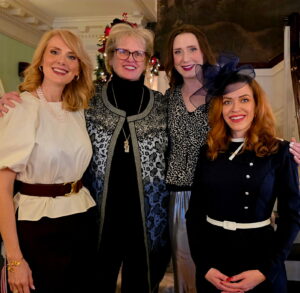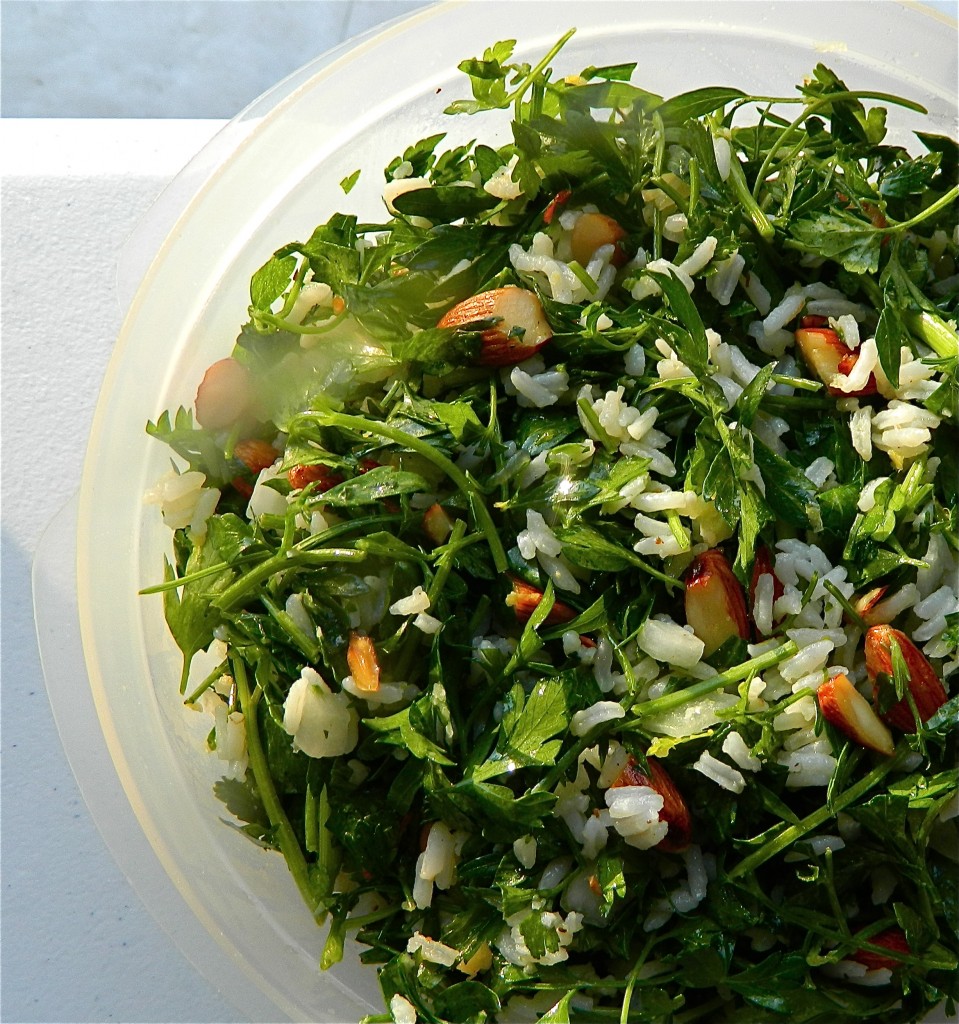As the year comes to a close…
December 27, 2025 | My Jottings
We had a really nice Christmas this year, and I hope you did too. When I was a little girl I wanted a few really nice presents, and I wanted to be able to go outside and ride my bike. Growing up in Southern California, that was almost always a given. If it rained it was an especially good Christmas, and my mother would let us burn our wrapping paper in our living room fireplace, the one time it was used each year.
Sixty years later, I don’t care about really nice presents (although I certainly received some), and instead I want peace and goodwill and a bit of quiet joy as we gather together.
On Christmas Eve we went to Jeremy and Carolyn’s for lasagna, panzanella, appetizers, Dairy Bars and spicy molasses cookies. We sat in their lovely living room with a fire crackling in the hearth, and sang a few carols as Jeremy and Elijah played their guitars and Margaret’s boyfriend played the piano.
On Christmas morning we gathered at Chris and Sharon’s, and enjoyed a potluck brunch, which is our custom. There was baked French toast, piles of bacon and sausage links, a coffee cake, democracy dip with fresh vegetables, beverages and various Christmas bars and cookies. I brought my usual sausage egg casserole, and Carolyn brought a delicious green salad with homemade vinaigrette. We leisurely opened presents, the little kids played with Legos, the cousins had white elephant gifts they swapped each other for with rolls of dice, and everyone grazed all day on the buffet spread.
Earlier in the week Sharon, Carolyn, Sara and I met at The Merryweather Inn for a lovely Christmas tea that Sharon arranged for us. We had scones and clotted cream, leek soup, exotic teas, and various bars. The inn is stunning and it was a wonderful way to spend some time with my beloveds. I call them The Blood in my Veins.
Today I’m listening to an audiobook I’m not enjoying yet. I’ve been in a wonderful national book club called Well-Read Mom for two years now, and this month’s book is Victor Hugo’s The Hunchback of Notre Dame. I had high hopes since I’ve read his Les Miserables three times and loved it, but this one…. so far it is an absolute slog for me. I’m hoping it gets better. Most of the selections in Well-Read Mom have been worthwhile, even if some are quite difficult.
Before I got out of bed at 4:00 a.m. this morning my cell phone delivered an alert from the National Weather Service about a coming snowstorm. Beginning tonight or early tomorrow morning, five to eight inches of snow is predicted. I’m always happy for a good snowfall, because I’m a home body and getting snowed in feels so cozy. The below zero temps will descend after the snow goes, and I am not a fan of that part of a northeastern Minnesota winter.

What are you reading? Do you have New Year’s Eve plans? (me: zzzzz)
I want my 2026 to be marked by prayer and peace. If you would like prayer feel free to leave a comment, and I will be happy to pray for you.
Warm wishes to all,
Wednesday’s Word — Edition 160
November 26, 2025 | My Jottings
A few beautiful quotes attributed to St. Augustine:
“To fall in love with God is the greatest romance; to seek him the greatest adventure; to find him, the greatest human achievement.”
“There is no saint without a past, no sinner without a future.”

(Feniqo)
“The truth is like a lion; you don’t have to defend it. Let it loose; it will defend itself.”
“If God seems slow in responding, it is because He is preparing a better gift. He will not deny us. God withholds what you are not yet ready for. He wants you to have a lively desire for His greatest gifts. All of which is to say, pray always and do not lose heart.”
“If you believe what you like in the gospels, and reject what you don’t like, it is not the gospel you believe, but yourself.”
A Unique and Delicious Salad
October 8, 2025 | My Jottings
I’m getting ready to make this salad tomorrow, and I thought I would share the recipe. Another recipe! I’d be willing to guess that not many people have eaten a salad like this one. When I saw it prepared years ago on TV it did not sound good to me (too much parsley), but I took the host’s word for it and tried it. It’s super good. I adapted it from Amy Thielen’s fabulous recipe and my own changes are included below.
 Parsley Salad with Toasted Almonds and Lemon
Parsley Salad with Toasted Almonds and Lemon
5 tablespoons fresh lemon juice
1 tablespoon Dijon mustard
2 teaspoons honey
1/2 teaspoon black pepper
1/4 to 1/2 teaspoon kosher salt
1 clove garlic, minced
1/4 cup olive oil
2 cups cold, cooked basmati rice
5 cups roughly chopped Italian parsley, with tender stems
1-1 1/2 cups whole raw almonds, skillet-toasted in 1 teaspoon butter, and roughly chopped
1/2 cup finely diced sweet onion, such as Vidalia
Zest of 1 lemon
Directions
Make the dressing right in the serving bowl: Combine the lemon juice, mustard, honey, pepper, salt and garlic in a large bowl and whisk to combine. Slowly add the olive oil, whisking until emulsified.
Add the parsley to the dressing and toss to combine. Add the rice, toasted almonds, onions and lemon zest, and toss well. As a side dish, this would serve about 6.
If you make it, let me know what you thought. I will make this again and again.
Now, I pray for every single person who’s reading these words today, that the Lord would help you, bless your family, remind you often of His mercy and love for you, bring healing and peace, and draw you closer to His beautiful self.
I’m asking Him to do the same thing for me.
Best Blue Cheese Dressing Recipe
September 22, 2025 | My Jottings
I have loved blue cheese dressing since I first tried it at The Lyon’s Den restaurant in Covina, California, when I was about eight years old. Today I even like to go to restaurants based on their blue cheese dressing. A couple of good ones are Texas Roadhouse, Outback Steakhouse, and OMC (Oink, Moo, Cluck) in my town.
I’ve made a few batches at home over the years, and finally adjusted one I found online to be just what I like. I love a good Cobb Salad, and they’re so good with blue cheese dressing!

Best Blue Cheese Dressing
10 ounces blue cheese
¾ cup buttermilk
¾ cup sour cream
¾ cup mayonnaise
8 t. white vinegar
1 t. sugar
½ t. garlic powder
3/4 t. salt
Generous amount of fresh cracked black pepper to taste
Mash the blue cheese and buttermilk together in a bowl with a fork until the mixture resembles large-curd cottage cheese.
Stir in the sour cream, mayonnaise, vinegar, sugar and garlic powder until well blended. Add salt and stir well, then season with black pepper.
If you like it a bit more tangy, you could up the sour cream 1 T. at a time. The original recipe I messed around with was too tart for me, and I ended up using more mayonnaise than they recommended. This is the one I ended up with, and love the most. And it’s soooo good with steak, dipping veggies (raw or roasted), and for tossing a chopped salad in.
Let me know if you make it, and have a great week!
Lyrics of Longing
August 29, 2025 | My Jottings
I am an early riser, and my day usually begins between 4:00 – 5:00 a.m. There are times when I wish I could sleep later, but for reasons only my brain knows, this is the time I wake and feel ready to begin the day. I love the rituals I’ve eased into as an older woman. The first thing I do is go potty. (That would be a ritual the entire human race partakes in, I’m guessing.) Then I click up the heat to 70 degrees, slide the curtains open in my bedroom that look out over Lake Superior, which can be seen in all its vastness once the trees across the street have let go of their leaves. If it’s summertime, then of course I don’t have the heat on yet, but we have long winters in Northern Minnesota so most of the time it’s heat I’m wanting. I walk to the kitchen in my L.L. Bean chickadee slippers, and microwave a long flannel dealy-bob filled with what smells like oat grains, because my neck is always cold and it’s so comforting to get back into bed with that wrapped around me. I pour a cup of Stok cold brew coffee with a little heavy cream in it, and walk back to my bedroom in the dark. Sometimes I light a beeswax candle on a tall dresser. I gather my devotional things and put them on the bed beside me, climb in, and press the wondrous button on a remote that makes my electric bed sit up a bit. If I’m not rushed, I might be given the grace to spend 1-2 hours reading, praying, crying, blowing my nose, writing in my journal, setting the sails for my day and giving thanks for about ten thousand things.
Then I think about brushing my teeth, getting dressed, starting my day. Laundry, dinner planning, errands, foster paperwork, and all the usual things I take such pleasure in doing. Right around this time is when I turn on some music on my bedroom Bose speaker. I usually play one song on repeat, sometimes for a couple of hours as I begin my day. I know exactly what song I’m supposed to play to nourish my soul, renew my mind, give me hope and elevate my thoughts. I don’t mean it’s only one song, I just know which song needs to go deeply into my inner being in the season of life I’m in at that time. I might play it every day for a week. I might play it every day for a month. Then another song might be what is needed. I just play it as long as I know God is using it in my life. Music is so powerful.
These days, this is the song I’m playing over and over and over. I’m sure most of you are familiar with it and I’ve mentioned it before on my little blog here. But this version is the one going deep into my soul, mind, and heart these days. These words say what I wish I could have said myself. I don’t view it as a Christmas song at all even though the video below is on Bob Bennett’s Christmas album. So if you listen, just take it in like it’s any day of the year. I put the lyrics below (I’ve also written them in my journal and I read them like a prayer) so you can see how beautiful they are.
Jesus Christ the Apple Tree
The tree of life my soul hath seen,
Laden with fruit, and always green
The tree of life my soul hath seen,
Laden with fruit, and always green
The trees of nature fruitless be
Compared with Christ the apple tree.
His beauty doth all things excel
By faith I know, but ne’er can tell
His beauty doth all things excel
By faith I know, but ne’er can tell
The glory which I now can see
In Jesus Christ the apple tree.
For happiness I long have sought,
And pleasures dearly I have bought
For happiness I long have sought,
And pleasures dearly I have bought
I missed of all; but now I see
‘Tis found in Christ the apple tree.
I’m weary with my former toil,
Here I will sit and rest awhile
I’m weary with my former toil,
Here I will sit and rest awhile
Under the shadow I will be
of Jesus Christ the apple tree.
This fruit doth make my soul to thrive,
It keeps my dying faith alive;
This fruit doth make my soul to thrive,
It keeps my dying faith alive;
Which makes my soul in haste to be
With Jesus Christ the apple tree.
(By Rev. Richard Hutchins)
Are there any songs you listen to on repeat? What do you think of this one?
God be with you all today,
Now
July 23, 2025 | My Jottings

Lord, it’s like you…
–Removed dark glasses
–Opened a door to a new universe
–Expanded my soul
–Awakened my mind
–Sat me at a new table with miles of feast before me
–Removed calluses from my heart
–Unveiled the scriptures anew
–Refracted the lenses of my eyes
–Plugged me in to new power
–Filled my lungs with fresh air
–Sensitized my hands and fingers to grasp some of You
–Put my feet on a beautiful path
–Confirmed my vocation
–Brought real help to my side
–Supplied me with a myriad of tools I’ve never had
–Infused me with hope and soberness and awe
Thank you.
A Pilgrim’s Prayer
June 27, 2025 | My Jottings
My Lord God,
I have no idea where I am going.
I do not see the road ahead of me.
I cannot know for certain where it will end. 
Nor do I really know myself,
And the fact that I think I am following your will
Does not mean that I am actually doing so.
But I believe that the desire to please you,
Does in fact please you.
And I hope I have that desire in all that I am doing.
I hope that I will never do anything apart from that desire.
And I know that if I do this,
You will lead me by the right road, though
I may know nothing about it.
Therefore I will trust you always.
Though I may seem lost in the shadow of death
I will not fear, for you are ever with me,
And you will never leave me to face my perils alone.
Amen.
~~Thomas Merton
What’s something everyone loves that you don’t?
May 27, 2025 | My Jottings
I like occasionally reading online lists of things most people like or even love, that a small minority of other people dislike or even hate. I’ve seen spiders, Brussels sprouts and dining alone on the hate list, with dissenters in the minority.
For a quick example, I can think of three things I’m not a fan of, that most of the world seems to love.
The first is Facebook. I won’t go into all the reasons I find it a waste of time and completely unhelpful. The second will place me in a tiny category of people: I am not a fan of the wildly famous woman singer who has been dating a famous athlete. Her lyrics and messages are not things all the vulnerable, impressionable little girls of the world should be filling their ears, minds, hearts and souls with. Does that sound judgmental? I guess it must, but I’m old now and I’m not sorry for my opinion.

The third popular thing is hanging freshly laundered clothes, sheets and towels outside to dry. My husband thinks laundry dried outside in the open air smells wonderfully fresh, and the thought of sleeping on air-dried sheets makes him happy. He may be right about the fresh smell, but all I can think of regarding hanging things out to dry is the dirt and pollen that floats through the air and gets trapped in the damp, newly laundered items.
Have you ever had a patio chair or table outside on your porch or deck? How long does it take for it to form a layer of dirt and dust on the surface? In my northerly spot in the country the air is pretty clean, and it takes less than a day. I wipe down my patio chairs and table with a damp cloth when we enjoy them, and the residue on them from being in the “fresh air” is alarming. I can wash my windows and have a fine layer of dirt on them in a matter of days. And the things we can’t see with the naked eye? Millions of pollen spores fly on the breeze and I don’t want them on my sheets.

People with allergies or sensitivities to mold or pollen might not realize that their newly washed, air-dried sheets are full of microscopic attachments they never considered. I dry my sheets and towels on high heat in my dryer inside my house and hope I have kept unwanted bits to a minimum.
Okay that sounded like a grumpy rant, and I guess it was. But that leads me now to wanting to know what is on your list?
What is something everyone seems to love, and you kind of hate?
Or, what is something everyone else seems to hate, and you kind of love? (This one for me would be dining alone, being alone, taking a trip alone, and sleeping alone.)
Hoping to be cheerful another day,
W. W. G.
April 30, 2025 | My Jottings
I wrote this post over sixteen years ago, when Clara (who is now 23) and Elijah (22) were such littles. She and I got together recently and had a nice time reminiscing about what we used to call W. W. G. It brought tears to my eyes to remember all we used to do, and how things have changed. I thought I would repost it today.
We’ve had a tradition in our family for almost two years now, and it has a name. We call it W. W. G., which stands for Wednesdays With Grandma.
 Each Wednesday, I pick up seven year-old Clara and six year-old Elijah after school and bring them back to our house. Ever the germphobe, I first have them wash the gajillion elementary school micro-organisms from their hands when they come in the back door, then they have a snack at the kitchen table and tell me about their day. Typical snacks at Grandpa and Grandma’s house are: mozzarella cheese sticks, a handful of peanuts mixed with raisins, raw almonds and Carr’s whole wheat “cookie crackers,” bananas and baby carrots, or Greek gods honey yogurt. I also give them each a glass of water and a Flintstone’s vitamin. Elijah chooses orange and Clara grape.
Each Wednesday, I pick up seven year-old Clara and six year-old Elijah after school and bring them back to our house. Ever the germphobe, I first have them wash the gajillion elementary school micro-organisms from their hands when they come in the back door, then they have a snack at the kitchen table and tell me about their day. Typical snacks at Grandpa and Grandma’s house are: mozzarella cheese sticks, a handful of peanuts mixed with raisins, raw almonds and Carr’s whole wheat “cookie crackers,” bananas and baby carrots, or Greek gods honey yogurt. I also give them each a glass of water and a Flintstone’s vitamin. Elijah chooses orange and Clara grape.
Then they both settle in to their favorite things to do here. Elijah usually heads for the Legos and starts putting together swords, robots and Star Wars light sabers. Clara might take out a book that she’s read five times already but still enjoys. Last week it was Ellen Tebbits by Beverly Cleary. Elijah will sometimes take out a large illustrated version of The Lion, the Witch and the Wardrobe, lay on his stomach on the den carpet and slowly page through the drawings he’s seen a hundred times. Last time he pointed out the fox in the woods that he thought was a spy for the dark side, and the faces in some of the Narnian forest trees. Sometimes they both open the Grandchildren Drawer in the kitchen to take out their art supplies, and Elijah draws comics and Clara an illustrated game or journal. Once in a while they play checkers or Battleship while PBS kids TV is on. They like Curious George and Arthur.
After about an hour it’s time for Clara to change into her leotard and tights, and I drive her to dance class. Elijah stays with Grandpa and they have man time. Clara takes a backpack with her pink ballet shoes and her black tap shoes, and when I drop her off inside the studio, I then collect four year-old Vivienne, who is in the class right before Clara’s. I drive Vivienne home to her house, and remind her that when she is six it will be time for her to join W. W. G. Then I return home and put the finishing touches on dinner.
Michael and I set the table and get everything ready. On Wednesday we have seven people at the table for dinner so we add a chair. Then I head out again, this time to pick Clara up from her dance lesson. She and I listen to a G.T. and the Halo Express CD in the van on the short ride home, and it brings a joy to my heart that I can’t describe, hearing her pure little voice singing many scripture passages set to music. “Grandma, maybe I should test you on the verses sometime soon, and help you with the ones you forgot!” she said recently, and I told her I thought that was a fantastic idea.
When we get home I serve everyone dinner and we eat together. Clara and Elijah always remind us to pray before we dig in, and everyone in our household enjoys the company of the little ones. They help us to laugh and chat about fun things while we enjoy eat one of my crockpot creations and a green salad.
Clara and Elijah are usually the first ones to finish eating (it doesn’t take long to eat two lettuce leaves and a tablespoon of chicken and rice casserole), and they know it’s time to pick up the toys and get ready for church. I take them to our church’s Wednesday night services, where something for every age is offered. It’s usually packed. Clara attends the little girls’ Prims class, and Elijah goes to Royal Rangers. They both love it. I sign them in and then go upstairs for prayer and worship, where I’m thankful for the darkened sanctuary and the music that leads me away from thoughts of things that weigh on my heart, and instead nudges me to thoughts of my God and His love and delivering power and willingness to help us as we walk out our puny lives. I take a purse-full of Kleenex and use it all up.
By the time church is over it’s already past the kids’ bedtime, but I figure W. W. G. is so special it’s okay if they miss an hour or two of sleep once a week. We leave church and as we drive home Clara and Elijah tell me about Royal Rangers and Prims and what they learned. And what candy they ate. When we arrive home they trot upstairs to get ready for a bath while I tend to things I need to do for those we care for in our home.
Upstairs when the huge tub is filled and ready, Clara and Elijah take a short bath and play with the small bin of toys I keep in our linen closet – there’s a tail-less brontosaurus named Bronto, a lime green tugboat, a plastic pirate, some large jacks, and a funnel, among other things. I put in a teeny bit of LOC from Amway (my favorite product by that company) and turn on the jets, and soon the bubbles are puffing up to their shoulders. They make hairstyles, beards, and bubble cakes while I read aloud to them. Right now we’re reading Stormy, Misty’s Foal by Marguerite Henry. Soon I wash their hair, drain the tub and go turn on the electric baseboard heater in our bedroom. I put two pairs of clean underwear and four socks on the top of the heater so after they dry off from their bath, they’ll put on something really toasty. They never fail to smile and remark about this. “Grandma, my socks are so warm on my feet!”
While they’re putting on their jammies, I prepare the pallet on the floor of our bedroom they like to sleep on. We have room in other bedrooms, but they prefer the pallet. I lay down a large blanket, doubled. I put two pillows down, one on each end, so they sleep foot to foot. Once they’re dressed they put on their slippers and we go back downstairs for a snack (because they usually don’t eat a lot of dinner due to the fact it had lettuce or tomatoes or wrinkle-your-nose “sauce” in it). They might have half a peanut butter sandwich, or a cheese stick with a handful of almonds. Then they brush their teeth at the kitchen sink, and give Grandpa a hug and a kiss goodnight.
Back upstairs, Clara and Elijah choose a book from the children’s bookcases in our dressing room, and they settle in for the night on their pallets. I turn on some soft classical music. I make a big show of covering them first with “the applesauce blanket,” which is a pale yellow Vellux blanket they like. Then I cover them with a down-filled comforter and they smile as it settles down on them. They know they have about ten to fifteen minutes to look through their books. Elijah often chooses a children’s Bible with unique illustrations, and Clara last chose The Seven Silly Eaters.
When they start to get sleepy, which is in no time at all, they set their books aside and we recount the things we’ve done together that day. None of it is that momentous, but we recite aloud what we did anyway. It’s a way to try to hold on to the preciousness of ordinary things done with these children I adore, and they seem to grasp why we do it.
Sometimes I tell them what I think they might be when they grow up. Elijah, who is an amazing puzzle worker and Lego builder, hears from his grandma that he will be a problem solver when he is older. I take him on my lap and quietly tell him that God might use him to build up, either buildings or people, that he might be called to help others solve things they’re struggling with, to help make sense out of puzzling and difficult situations. He looks at me tenderly as I try to bless him with my feeble words, and he seems to be taking it all in like a sponge. Then he looks into my eyes and quietly says, “I don’t like your breath.”
I tell Clara that perhaps she will write and/or draw someday and people will want to read her thoughts and ideas. I tell her that she is so patient and loving with her little sisters and is such a fine example to them. I tell her that when she’s older, Elijah and Vivienne and Audrey will recall what a wonderful big sister they’ve had, and that the way she treats them now will pave the way for loving and beautiful relationships when they’re all grown up with families of their own. I tell Clara that God will use her to bring peace and joy into peoples’ lives, and that she’s already doing that, even though she may not fully understand what I mean.
Then I might sing a song or two to them. They like “Jesus Wants You For a Sunbeam” and “The Life of the Voyageur” and “Victory in Jesus.” When Clara was three she often requested the latter song by saying, “Gwamma, will you sing ‘Bic-ta-wee in Jesus?’ ”
I then pray briefly and ask God to give them deep sleep, good dreams, and for Him to keep His hands steady upon them their whole lives, to keep them close to Him and loving Him with their whole hearts. They might not know all that this entails, and I might not know it either, but God does. I’m so thankful He can read our hearts when our words fail.
Within minutes they’re fast asleep, and I slip back downstairs to take care of tasks still calling my name. I clean the kitchen, visit with others as I get medications ready, talk with them about what the next day might hold for them, ask them about what they’d like to do for the coming weekend, etc. My dear husband might rub my feet and scratch the grooves left in my ankles from my SmartWool socks, which is a little bit of heaven for me. Before we both head upstairs for the night, I make sure everyone in the house is fine and tucked in or has everything they need. I lock the doors, turn out the lights, turn down the furnace.
Each Thursday morning when we get up there’s a lot to do. I lay out clothes for Clara and Elijah, quietly wake them up and tell them I’ll see them downstairs when they’re dressed. Then I go down, still in my exceedingly attractive red plaid flannel nightgown, to turn up the heat, begin making lunches, setting out medications, making each person a different breakfast, feeding the dogs and making sure they go out, and more. I might even throw in a load of laundry right away. Clara and Elijah always come down with sleepy smiles on their faces. They like to have Maple Pecan Crunch cereal for breakfast, and I always put a small handful of fresh pecans on top.
Once they’re dressed in their school clothes, we turn on the television for a few minutes while I do Clara’s hair, which is very long. Mostly I put it in a French braid. They brush their teeth again, I give them each a small snack to take to school with them, and they make sure they have their backpacks before they put on their coats, gloves and shoes.
Clara and Elijah usually take the bus, but on W. W. G. I drive them the six blocks to their school. In the few minutes it takes, I remind them that it won’t be long before the next Wednesday With Grandma, and that I’ll be thinking of them and praying for them every single day. When we pull up in front of the school with many buses, cars, crossing guards and children bustling around, I hop out to slide open the van door for a last hug.
“I love you! Jesus is with you today!” I whisper in Clara’s ear and in Elijah’s ear as I kiss them goodbye and watch them both run off to the front door of the big brick building.
I drive the six blocks home, wiping tears and blowing my nose and praying for all seven of my grandchildren, not just for the two that are old enough and near enough to have W. W. G.
Wednesdays With Grandma.
Who knew a day in the middle of the week could mean so much?
One of the Best Pasta Salads You’ll Ever Eat
March 31, 2025 | My Jottings
I have been making this pasta salad off and on for almost thirty years now, and I can’t remember one single time that someone has eaten it and not asked for the recipe. It’s unique, not your typical pasta with mayonnaise, or pasta-with-Italian-flavors-salad, and the various textures and tastes are just delicious.
It’s called Spicy Grape Pasta Salad, but with everything in it you could call it Angel Hair Chicken Salad with Broccoli and Grapes, Or Asian-flavored Vegetable Salad with Chicken and Cilantro, or a dozen other titles. Whatever you decide to call it, you should make it. I made a quadruple batch of it recently and it was gone in 24 hours. Granted, I served a group, but I heard mmmms and moans and maybe observed a few eye rolls as people were enjoying it.

Spicy Grape Pasta Salad
16 ounces angel hair pasta
2 cups cooked, cubed chicken breast
2 cups red seedless grapes, cut in halves
1-2 sweet red bell peppers, julienned
1 large bunch of broccoli (or asparagus cut into 2 inch pieces), cut in small florets (I steam these over boiling water for a couple minutes and then cool by plunging into cold water – makes them nicer to eat in a salad)
1 cup finely sliced celery
1/2 cup finely sliced green onion
4-6 T. chopped fresh basil or fresh cilantro
Spicy Oriental Dressing (see below)
Cook pasta according to package directions; drain. Toss pasta with the Spicy Oriental Dressing. Add remaining ingredients; toss and serve. Store in fridge.
Spicy Oriental Dressing:
Whisk together:
3/4 cup seasoned rice vinegar (must be the seasoned kind)
3 T. vegetable oil
3 T. sesame oil
6 T. soy sauce (I use Kikkoman lower-sodium)
4 heaping Tablespoons grated ginger root (I grate fresh ginger on a microplane, but you can use the ginger in the little jars and tubes found in the produce section too – the result is just as good)
1/2 teaspoon crushed red chilies (the kind found in a spice jar)
2 cloves fresh garlic, finely minced (don’t use garlic powder)
Let me know if you make it!